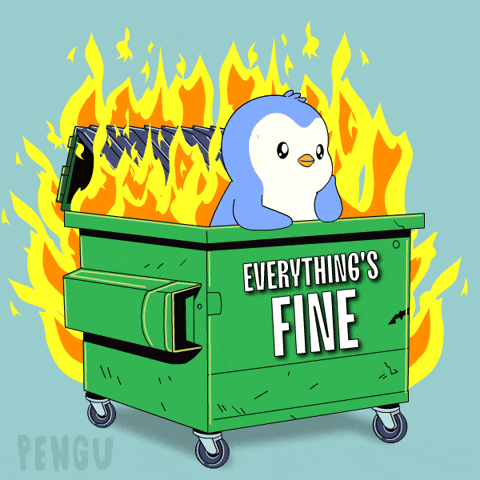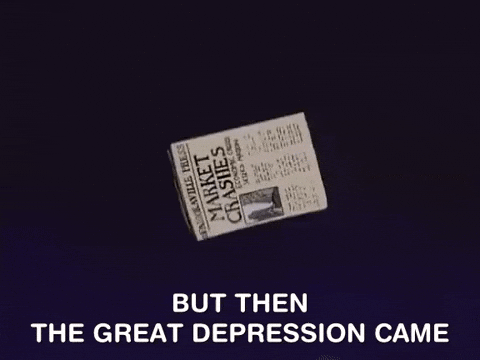Klarna sells $26 Billion in BNPL debt to a student loan behemoth
Heard the latest news in the BNPL shopping space? Klarna is selling up to $26 billion worth of Buy Now, Pay Later loans – offloading future debt to Nelnet, a U.S.-based financial services company that mainly does student loans.
Klarna gets cash for its loans and Nelnet takes on the risk that people might not pay back their loans.
Why would Klarna do this? By offloading that debt, they free up money to grow the business – more cash for marketing, tech, and expansion – without carrying the risk on their own balance sheet.
And Nelnet, a student loan company😶, taps into the booming BNPL space.

Let’s understand the Klarna-Nelnet debt deal
Klarna and Nelnet have a multi-year forward-flow agreement for Nelnet to purchase new BNPL Klarna loans on an ongoing basis.
Klarna will still “originate” and “service” the loans aka issue and manage them. But Nelnet will buy and officially own them.
Why?
It’s all about Klarna securing instant and scalable funding for its BNPL loans. This deal with Nelnet gives it an instant way to fund on-demand Nelnet basically gave Klarna instant, scalable funding for future loans, allowing it to free up capital for other endeavors, like a potential public offering.
Klarna is trying to go public. It filed for an IPO in March, but had to push that back due to the tariff wars and economic concerns. Plus, it’s racked up serious losses from user loan defaults.
What’s the tea on Nelnet?
BNPL is super popular, so we want to know exactly who’s snapping up these BNPL loans, and which other parties are getting involved. Let’s dive into this.

Nelnet, Inc. is a publicly traded American company (ticker: NNI on the NYSE) that’s based in Lincoln, Nebraska. Its been around since the late 1990s and is known as a student loan and EdTech company.
But there’s a lot more to it.
First of all, this company is involved in way more than just finance. It’s a huge conglomerate with multiple subsidiaries, acquisitions, and investments across these industries:
- Education technology & payments (school billing platforms, tuition systems)
- Banking & financial services (Nelnet Bank offers private student loans, refinancing, CDs, savings)
- Communications (owns Allo Fiber internet)
- Renewable energy & investing (solar, venture capital)
- Employee Health (health platforms)
- Career (resume and certification platforms)
- Startups (Hudl, Nebraska Global, Eye Verify, Travefy, and Mind Mixer)
K, now let’s get back to the financial side.
So Nelnet actually services around 42% of U.S. federal student loans😮 and has been the largest student loan servicer since 2018. As you can imagine, this private lender has racked up quite the track record of lawsuits and complaints.
Here’s what you need to know.
A history of exploiting the rules and getting into regulatory trouble. Plus lawsuits, settlements, and major political donations. Nelnet’s student loan holders have lots to say about payment errors, confusing statements, and bad customer service – but it still doesn’t rank as the worst company out there.
So what does this mean for Buy Now, Pay Later users?
What does Klarna’s Nelnet agreement mean for Buy Now, Pay Later?
Klarna is selling Buy Now, Pay Later loans to Nelnet, but since its still the one originating and servicing them this shouldn’t affect the shopping or repayment experience.
In theory.
Offloading debt to third parties is a red flag.
It reminds us of patterns and practices leading up to previous financial crashes. Case in point? The 2008 financial crisis, where banks bundled risky subprime mortgages and sold them to investors – hiding, spreading, and amplifying financial instability.

Similarly, Klarna may be shifting financial risk and obscuring the truth about consumer debt. Or people who default on their BNPL loans could eventually find themselves in debt to companies they never expected to owe.
Well, hopefully none of that happens.
At the very least, this move shows that BNPL is becoming big business and that the risk is spreading through the financial system. This debt is easy to access and could end up in the same pipelines involved in America’s student loan debt crisis.
This business deal might not directly affect consumers (for now) but we still have tons of concerns around Buy Now, Pay Later use. While BNPL services offer interest-free payments, they come with hidden dangers:
- Overextending Debt: Many users take out multiple BNPL loans simultaneously. A LendingTree survey revealed that 60% of BNPL users hold multiple loans, and 41% reported making late payments.
- Too Easy & Financial Stress: The ease of access to BNPL services can lead to overspending. A Bankrate survey found that 56% of BNPL users have experienced issues like overspending, missing payments, or regretting purchases.
- Lack of Regulation: BNPL providers often operate outside traditional credit regulations, leading to concerns about responsible lending practices and consumer protection.
Btw, the Atlantic recently published an article calling Buy Now, Pay Later a gateway drug to consumer debt. We might talk about that more later.
Healthy Financial Habits for Buy Now, Pay Later
BNPL is super convenient and seems low-risk. And that makes it even more important to use these services carefully. Here are tips:
- Budget babe!: Before opting for BNPL, make sure you can afford the total cost of the purchase.
- Track your BNPL plans: Keep track of all BNPL obligations to avoid missing payments and accumulating debt.
- Understand the systems: Be aware of any late fees, interest rates, or other charges that may apply.
- Look for options: Consider traditional credit options that offer more robust consumer protections.
- Skip the debt: Do you really need that purchase? Consider going on a debt fast instead. Stay strong, because the same mechanisms that factored into serious historical financial crisis are showing up here.
Remember, financial empowerment comes from making informed decisions – rather than letting our emotions or temporary wishes win out. Stay vigilant, budget wisely, and always prioritize your financial well-being.



